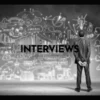Want to dive into a pool of cash like Scrooge McDuck? Who doesn’t? Financial freedom and wealth building are real goals. They can feel attainable. Your current financial state might seem more ‘duckling’ than ‘McDuck’. Knowledge is treasure. Books hold the key to finding that financial gold.
I. Books: Your Launchpad to Financial Stardom
Books serve as your financial secret weapon. They won’t magically fill your pockets. Yet, they provide the knowledge needed for smarter money moves. Here are must-read books in key areas:
General Finance & Investing: Laying the Foundation
First, understand the basics. Think of a shaky foundation for a skyscraper. That’s a disaster. Wealth requires a solid grasp of finance and investment. Here are some champions in this field:
- “The Simple Path to Wealth: Your road map to financial independence and a rich, free life” by JL Collins: This book is pure gold. Collins simplifies financial independence with low-cost index fund investing. It’s a guide that offers actionable advice for wealth-building.
- “MONEY Master the Game: 7 Simple Steps to Financial Freedom” by Tony Robbins: The famed Tony Robbins dives into personal finance with energy. He interviews financial experts and extracts their wisdom into seven actionable steps.
- “The Little Book of Common Sense Investing: The Only Way to Guarantee Your Fair Share of Stock Market Returns” by John C. Bogle: Bogle emphasizes low-cost investing. This compact book gives timeless insights on investing through index funds.
- “The Intelligent Investor” by Benjamin Graham: This is the bible of value investing from a legendary mentor. It’s dense but essential for grasping enduring investment principles.
- “The Little Book of Value Investing” by Christopher H. Browne: This book simplifies Graham’s core principles. It makes value investing easy to understand and implement.
- “The Warren Buffett Way” by Robert Hagstrom: Explore how Buffett became the Oracle of Omaha. The book explores his investment strategies and offers insight into his value-focused approach.
- “How I Invest My Money” by Joshua Brown and Brian Portnoy: This book features essays from 25 financial experts, revealing their investment strategies and mistakes. See how professionals navigate the world of finance.
- “Broke Millennial Takes On Investing” by Erin Lowry: Lowry demystifies investing for millennials. This relatable guide addresses unique financial challenges faced by younger generations.
- “Wealth Warrior” by Linda Garcia: This book empowers women regarding finances. It blends practical advice with motivation to help overcome financial obstacles.
Wealth Mindset and Habits: Your Brain’s Financial Gym
Wealth is more than numbers; it involves mindset. Your mind controls your financial success. These books help rewire your financial thinking:
- “Think and Grow Rich” by Napoleon Hill: Hill explores the psychology behind wealth creation. He analyzes successful people, revealing habits that promote financial success.
- “How Rich People Think” by Steve Siebold: Siebold contrasts middle-class and wealthy mindsets. Rich individuals think differently about money and success.
- “Rich AF: The Winning Money Mindset That Will Change Your Life” by Vivian Tu: Tu discusses money mindset for women. She presents practical advice and motivates women to improve their financial futures.
Budgeting and Financial Planning: Charting Your Course
Budgeting seems dull, but it is crucial. Picture a budget as your financial roadmap. Without one, wealth evades you. These books present various budgeting approaches:
- “50/30/20 Budget”: This budgeting rule is simple and effective: 50% for needs, 30% for wants, 20% for savings. Many sources vouch for its clarity and efficiency.
- “The 15-65-20 rule”: This stricter approach allocates 15% for savings, 65% for essentials, and 20% for enjoyment. It emphasizes aggressive saving for those wanting to accelerate wealth.
- “The Total Money Makeover” by Dave Ramsey: Ramsey’s direct approach helps many eliminate debt. His guide outlines steps necessary to build a solid financial foundation.
II. “Rich Dad Poor Dad” by Robert Kiyosaki: The Game Changer
No discussion about financial literacy lacks “Rich Dad Poor Dad.” This book shook up common perspectives on money and work.
Key Lessons from “Rich Dad Poor Dad”:
- Financial Literacy is King: Kiyosaki highlights that schools often neglect practical financial skills. He emphasizes understanding financial concepts as vital for wealth.
- Assets vs. Liabilities: Know the Difference: Assets generate income. Liabilities drain resources. The goal? Acquire assets while minimizing liabilities for greater financial health.
- Building Wealth Through Assets: Kiyosaki champions acquiring valuable assets over merely saving money. He believes this path leads to true wealth accumulation.
- Invest in assets that create passive income. Consider real estate, stocks, and businesses. These can work for you even while you sleep. Make your money work harder than you do.
- Mindset Shift for Financial Independence: “Rich Dad Poor Dad” focuses more on mindset than finance. Think like an entrepreneur. Break free from paycheck-to-paycheck living. Aim for financial freedom.
- Focus on Building Your Own Business: Jobs are important, but true wealth comes from owning assets, usually through businesses. Kiyosaki advises readers to explore entrepreneurship for financial freedom. Look beyond the 9-to-5 and consider creating income-generating systems.
- Pay Yourself First – Always: Before paying bills, prioritize saving and investing. Set aside a part of your income for the future. This habit promotes financial well-being.
- Work to Learn, Not Just to Earn: See your job as a chance to learn valuable skills and gain knowledge. Use these skills to build your own assets and ventures later. Look at your career as a stepping stone, not the final goal.
III. Reaching Millionaire Mountain: Scaling the Heights
Being a millionaire may feel like a distant dream for many. However, it is achievable! It requires consistent effort, smart strategies, and a bit of reading.
Books to Guide Your Millionaire Journey:
- “The Automatic Millionaire” by David Bach: Bach highlights that the journey to millionaire status can be simple. Automate savings and investments. Set systems that work on autopilot for wealth accumulation.
- “Start Small Finish Big” by Fred DeLuca: The Subway founder shares his entrepreneurial story. He emphasizes starting small and expanding. It proves that massive empires often begin from humble origins.
- “Everyday Millionaires” by Chris Hogan: Hogan interviews people who became millionaires via hard work and smart habits. This book dispels myths about inherited wealth. Relatable stories and strategies from self-made individuals.
- “Business Adventures” by John Brooks: Warren Buffett’s favorite business book. It consists of compelling tales from mid-20th century businesses, revealing timeless lessons on finance and nature of humans. Business wisdom hidden in engaging narratives.
- “Cashing in on the American Dream” by Paul Terhorst: Terhorst provides an unconventional approach to early retirement. He promotes simple living coupled with smart investing. It’s a manual for achieving freedom and financial security.
- “The Millionaire Next Door” by Thomas J. Stanley and William D. Danko: This insightful book uncovers habits of real millionaires. They often live frugally and prioritize financial independence over flaunting wealth. It dispels millionaire stereotypes.
- “The Millionaire Fastlane” by M.J. DeMarco: DeMarco advocates for an entrepreneurial approach to wealth building. It encourages a proactive, business-focused path to millionaire status. Ideal for those wanting to speed up wealth accumulation.
- “The Bogleheads’ Guide to Investing” by Taylor Larimore, Michael LeBoeuf, and Mel Lindauer: A thorough guide to the Boglehead philosophy on investing – low-cost index funds and long-term thinking. This step-by-step guide aids everyone in wealth building.
- “The Simple Path to Wealth” by J.L. Collins: (Yes, this book is worthy of mention again!) Highlights simplicity and index fund investing as keys to financial independence. It’s important enough to mention twice due to its relevance. Consistency and simplicity are essential.
- “How to Turn $100 into $1 Million”: This title draws attention! Core message focuses on using small amounts to build significant wealth with smart investments and entrepreneurial efforts. Start small, dream big, then act.
Strategies and Habits of Millionaires: The Millionaire Blueprint
- Earn More Money: Essential for wealth-building. Increase income through skill development or career advancement. A side business helps too. You can’t solely depend on savings for wealth.
- Save Money: Live below your means and save a portion of your income. The more you save, the more you can invest. Frugality serves as a millionaire’s secret weapon.
- Invest Money: Use savings wisely in profitable assets like stocks or real estate. Investing acts as the engine driving wealth creation. Need guidance? Check Bankrate’s 10 Golden Rules of Investing.
- Diversify Investments: Don’t place all your investments in one basket. Spread across various classes to reduce risk. Diversification acts as your financial safety net.
- Set Goals and Plan: Establish your financial targets – retirement, independence, home buying – and create a plan to reach them. Goals offer direction while plans provide structure to achieve them.
- Protect Your Assets: Safeguard your wealth with insurance, legal means, and wise planning. Safeguarding your success is vital; unforeseen events shouldn’t derail progress.
- Minimize Taxes: Use tax-efficient investment strategies to reduce tax burdens and retain more wealth. Taxes can be huge; minimizing them within legality is sound financial management.
- Manage Debt and Build Credit: Avoid excessive debt and handle existing debt wisely. Foster a strong credit score for better opportunities. Debt can hinder wealth; solid credit aids wealth creation.
- Build Multiple Income Streams: Don’t depend solely on one income source. Consider side hustles, investments, or businesses to create various income streams. More sources enhance financial security.
Millionaire Demographics & Habits: What Sets Them Apart?
- Reading Habits: Self-made millionaires are typically avid readers.
Forbes notes they average one book per week. Knowledge breeds power, particularly in finances. - Professions: Millionaires often come from surprising professions. Studies show engineers, accountants, teachers, business managers, and attorneys frequently appear among millionaires. Practical careers are often paths to wealth.
IV. Turning Pages into Paychecks: Earning Money Reading & Writing
Do you love books? Wonderful! You can earn money while enjoying reading and writing. It may not make you rich immediately, but it’s a fun way to make extra income doing what you love.
Getting Paid to Read: Yes, Really!
- Book Reviewing: Provide opinions for pay! Sites like
Online Book Club andKirkus Reviews allow users to review books for money. Share your insights with compensation. - Proofreading and Beta Reading: Assist authors in perfecting their work pre-publication. Proofreaders spot errors, while beta readers give story feedback. Your reading skills can earn you money.
- Narrating Audiobooks: Have a narrating voice? Consider this lucrative opportunity! Platforms like
ACX (Audiobook Creation Exchange) connect narrators with authors. Lend your voice to stories and earn.
Self-Publishing & Royalties (Amazon KDP): Your Inner Author Unleashed
- Kindle Direct Publishing (KDP): Amazon’s platform allows easy self-publishing of ebooks and paperbacks. Publish your own work and earn royalties on sales. Control your publishing outcomes.
- Ghostwriting: Don’t want to write? Hire a ghostwriter! You maintain authorship while they handle the writing. Publish without doing the writing yourself.
Writing & Publishing a Book: From Idea to Income
- Non-Fiction Hot Topics: Business and money genres lead non-fiction sales, followed by religious and self-help topics. Write content people wish to read and learn about.
- Fiction Favorites: Genres like romance, science fiction, and self-help consistently capture reader interest and sales.
- genres. Romance is the top choice, followed by sci-fi and self-help. Focus on these genres for more readers.
- Mystery and Detective Power: These novels remain popular. From Sherlock Holmes to Agatha Christie, they have generated income for over 100 years. Solve a mystery and boost your income.
- Catalog Size Matters: Authors making over $100,000 a year often have bigger catalogs. They usually have around 30 books, while newer authors have about 7. More books can lead to higher income. Create a library of your works.
- Million-Dollar Copies: Selling a million copies can net you a million dollars, depending on royalties. Set high goals, write well, and connect with readers. Aim for bestseller status.
V. Golden Rules of Finance: Timeless Wisdom
Some financial rules stand out as essential. These are golden rules to apply:
- “Rule No. 1 is never lose money.” – Warren Buffett: Safeguard your capital. Eliminate unnecessary risks and work on preserving your investment. Recovering losses is far tougher than making gains.
- The 50/30/20 Rule: A straightforward budgeting method. Divide your after-tax income sensibly between needs, wants, and savings. Budgeting can be simple.
- Diversify Your Investments: Don’t put all your investments in one asset type. Spread your risk. Diversification protects you from market changes.
VI. Beyond the Books: Expanding Your Horizons
Mindset and Personal Growth: The Inner Game
- “Mindset: The New Psychology of Success” by Carol S. Dweck: Learn about the growth vs. fixed mindset. A growth mindset is vital for learning, resilience, and long-term success in finance. Your mindset supports your success.
Billionaire Reading Habits: What the Elite Read
- Elon Musk and Fantasy/Sci-Fi: Even billionaires seek inspiration in books. Musk read a lot of fantasy and sci-fi as a child. Classics like “The Lord of the Rings” sparked his imagination. Reading fuels creativity for all, including billionaires.
VII. Global Bestsellers: The Literary Titans
Let’s look at global bestsellers. They showcase the reach and impact of books worldwide.
- The Bible (5 billion+): Its cultural and religious impact is enormous.
- The Quran (3 billion+): A religious text that holds worldwide significance.
- Quotations from Chairman Mao Tse-Tung (Little Red Book): A major political work that influenced many.
- Don Quixote: A recognized classical masterpiece in fiction.
- A Tale of Two Cities: Charles Dickens’ cherished historical narrative.
- The Lord of the Rings: J.R.R. Tolkien’s saga has enchanted audiences for ages.
Here you have your toolkit for navigating finance. These key investing rules, millionaire mindsets, and strategies for earning mark your path towards wealth. Read, learn, and strive for that financial goal (perhaps with a smaller goal to start).
For more resources on becoming wealthy, Credit Karma lists 25 recommended books. For a guide to personal wealth building, Investopedia offers 7 simple steps. Financial literacy is a continuous journey. Keep learning and growing.





